Bexley Voice Wiki shows its power of communication at a DfE event
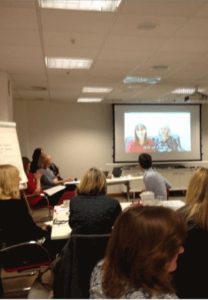 Bexley Voice For Special Needs Children (BV) is small charity, comprising volunteer parents and carers, which supports families of children and young people with special needs and disabilities age 0-25. We offer a programme of visits to all the schools in Bexley as well as meeting with professionals and our Local Authority. We generally have two volunteers attend.
Bexley Voice For Special Needs Children (BV) is small charity, comprising volunteer parents and carers, which supports families of children and young people with special needs and disabilities age 0-25. We offer a programme of visits to all the schools in Bexley as well as meeting with professionals and our Local Authority. We generally have two volunteers attend.
At BV, we have been piloting the use of a Rix Wiki for our own forum, to help us with the visits and presentations, and have been delighted with the results. As parent volunteers, we often have ’emergencies’ where one person is unable to attend. By using a Wiki, we can be confident that we are presenting the correct and full information, without the need for a second person to be present.
With invaluable support from Sam Goncalves, one of our parents, the BV Wiki has enabled our team of volunteers to offer more detailed information to our parents and carers at the touch of a button. There is so much information that we need to give out and it’s not always possible to retain it all. This way, the volunteers know that they can visit schools and go to meetings, and present all the information accurately, for example, on the SEND Reforms, EHC Plans, all about Bexley Voice membership, support organisations and benefits advice. We can spend less time training the volunteers to present to schools, as the relevant information is already there to show to the parents or professionals. We also find that it’s more engaging for parents to watch the different short videos, rather than us talking for two hours!
Recently, our forum Wiki helped us with a real challenge. As BV is a member of the National Network of Parent Carer Forums (NNPCF), we were asked to create a new private Facebook Group to enable the 32 London NNPCF forums to share information. As part of this project, we were invited by Contact A Family to showcase a presentation at the Department of Education to all of the London forums and professionals from the DofE, all about the new Facebook Group.
Both myself and Juli Atkinson (BV Parent Coordinator) were extremely nervous to say the least, at the thought of presenting to such a large audience of professionals. We were concerned about missing out vital information to ensure the network of forums understood how to use the new Facebook Group. As we are all parent/carers experiencing similar issues, we wanted to be informal and relaxed but also be professional and informative. So it was suggested that we add a new section to our forum Wiki; a great way to introduce how we at BV are involved at a regional level.
We enjoyed filming the Wiki information sections, especially being able to do re-takes so that the information was correct. Using video clips to explain the various sections (showing me at my computer) was much more visually engaging. And knowing the exact timing of the presentation also helped with the planning of the day’s agenda.
Once the Wiki section about the Facebook Group was set up, both Juli and I were much more relaxed. Just knowing that if either one of us was unable to attend or got ‘stage fright’ on the day, that it was all prepared beforehand made such a massive difference to our presentation. The Wiki was very easy to use, just a few clicks and we were able to sit back and watch the audience’s positive reaction.
It was so well received, we had great feedback from many attendees and we would certainly use a Wiki for many types of presentations in the future. It is easy to use, fun to film, can be updated regularly if required and takes a lot of stress out of presenting! We even have a video from a Local Authority professional on there now talking about our forum’s valuable contribution.
Thanks to Sam and the Wiki, which really did make such a difference!

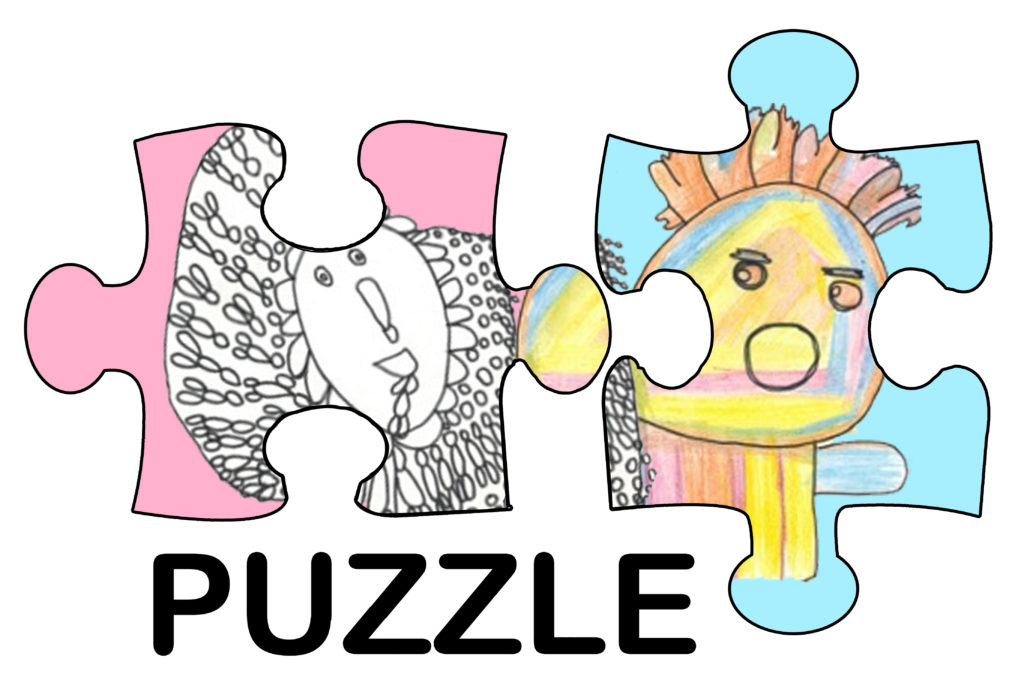
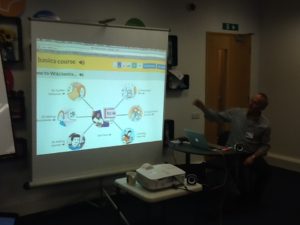 Currently, adults with intellectual disabilities (ID) in these European countries have fewer opportunities for education and training or for participating in the social and economic spheres of life. This is partly because much of the existing educational text has not been adapted to the specific needs and language skills of adults with ID, so that it can be easily understood. There is also a low take-up of suitable digital tools to support learning with adapted materials, both because the educators are not aware of the availability of such tools nor do they have the knowledge and skills to use them effectively.
Currently, adults with intellectual disabilities (ID) in these European countries have fewer opportunities for education and training or for participating in the social and economic spheres of life. This is partly because much of the existing educational text has not been adapted to the specific needs and language skills of adults with ID, so that it can be easily understood. There is also a low take-up of suitable digital tools to support learning with adapted materials, both because the educators are not aware of the availability of such tools nor do they have the knowledge and skills to use them effectively.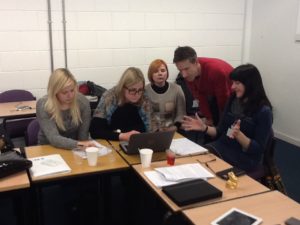 Puzzle is now well underway. An international team of 12 education professionals from Greece, Poland and Lithuania is being trained by the MTM specialists on the ‘easy to read’ method and by the Rix Research specialists on using innovative technology platforms as the main way of disseminating ‘easy to read’ material. Everyone came together in February, for a week’s concentrated workshop held in London, at the Rix offices at the University of East London’s Docklands campus. The workshop was a great success as the participants explored how the quality and accessibility of information provided to people with ID can be improved.
Puzzle is now well underway. An international team of 12 education professionals from Greece, Poland and Lithuania is being trained by the MTM specialists on the ‘easy to read’ method and by the Rix Research specialists on using innovative technology platforms as the main way of disseminating ‘easy to read’ material. Everyone came together in February, for a week’s concentrated workshop held in London, at the Rix offices at the University of East London’s Docklands campus. The workshop was a great success as the participants explored how the quality and accessibility of information provided to people with ID can be improved.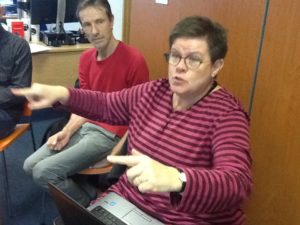 The Puzzle project will also see further research, led by Poland, on assessing how adults with ID in Greece, Poland and Lithuania access information on their human rights and their difficulties in understanding the written information. The research will lead to the development of an e-learning platform and mobile application, with information and learning materials on human rights issues produced in ‘easy to read’ format. This will then enable the design and testing of a series of ‘easy to read’ lesson plans to help people with ID understand their basic rights, for example in employment, housing, social integration and education
The Puzzle project will also see further research, led by Poland, on assessing how adults with ID in Greece, Poland and Lithuania access information on their human rights and their difficulties in understanding the written information. The research will lead to the development of an e-learning platform and mobile application, with information and learning materials on human rights issues produced in ‘easy to read’ format. This will then enable the design and testing of a series of ‘easy to read’ lesson plans to help people with ID understand their basic rights, for example in employment, housing, social integration and education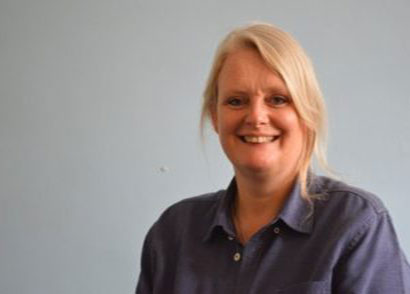 Amanda Bailey is the Deputy Manager of CNWL Recovery and Wellbeing College. She has a background in social work and nursing but she says, “It is my personal experience with mental health services that is really important in my job as a peer trainer.”
Amanda Bailey is the Deputy Manager of CNWL Recovery and Wellbeing College. She has a background in social work and nursing but she says, “It is my personal experience with mental health services that is really important in my job as a peer trainer.”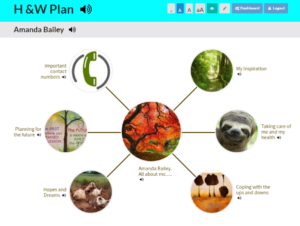 Amanda describes the Wiki as a dynamic extension of the Health and Wellbeing plan. “A health plan is constantly being changed and updated. Having the plan on the Wiki makes it much easier to do that, as well as keep professionals and supporters informed,” she says.
Amanda describes the Wiki as a dynamic extension of the Health and Wellbeing plan. “A health plan is constantly being changed and updated. Having the plan on the Wiki makes it much easier to do that, as well as keep professionals and supporters informed,” she says.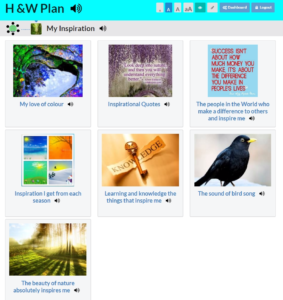 For Amanda building her Wiki made her realise what she really enjoyed and helped her to discover new things that she wanted to do in the future, for example, to walk a half marathon.
For Amanda building her Wiki made her realise what she really enjoyed and helped her to discover new things that she wanted to do in the future, for example, to walk a half marathon.
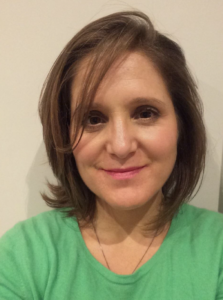 Thea Fitch is a peer recovery trainer and peer support worker in a community health team for homeless individuals, who are admitted to psychiatric wards. She uses her personal experiences with mental health difficulties, hospital admissions, and homelessness to help people get their lives back on track.
Thea Fitch is a peer recovery trainer and peer support worker in a community health team for homeless individuals, who are admitted to psychiatric wards. She uses her personal experiences with mental health difficulties, hospital admissions, and homelessness to help people get their lives back on track.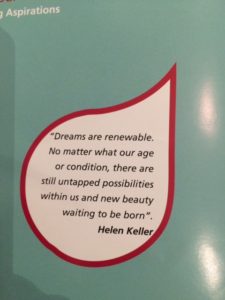 Thea finds great inspiration in certain quotes and now, instead of jotting a new quote down on the back of a piece of paper and stuffing it in a folder, Thea can add the image or type up the quote onto her Wiki and it is immediately uploaded and saved alongside her collection of inspirational words.
Thea finds great inspiration in certain quotes and now, instead of jotting a new quote down on the back of a piece of paper and stuffing it in a folder, Thea can add the image or type up the quote onto her Wiki and it is immediately uploaded and saved alongside her collection of inspirational words.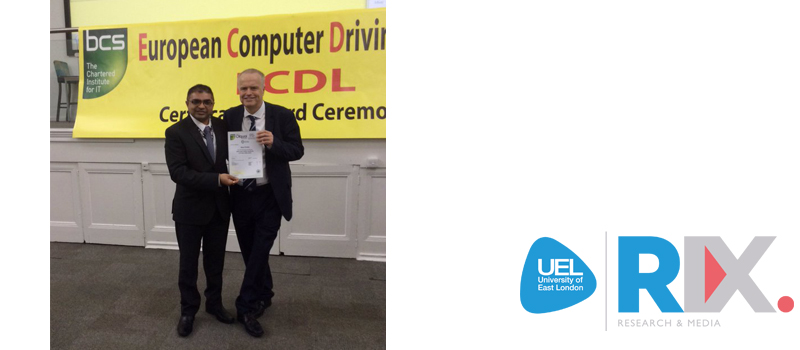
 Everyone at Rix Research & Media is so proud of Ajay. Gosia Kwiatkowska, Research Centre Manager, said:
Everyone at Rix Research & Media is so proud of Ajay. Gosia Kwiatkowska, Research Centre Manager, said:
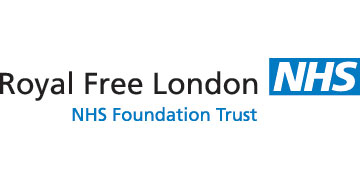 The Royal Free Hospital Children’s School (RFHCS) is a community Special School for pupils aged 5 to 16. It offers high quality education for all children who are inpatients at the Royal Free Hospital and for some children who are not inpatients but who are receiving support from medical or mental health services and may benefit from attending the school on a daily basis. The school operates within a multidisciplinary framework; working closely with a range of professionals including consultant doctors, mental health professionals, physiotherapists, speech therapists and other agencies.
The Royal Free Hospital Children’s School (RFHCS) is a community Special School for pupils aged 5 to 16. It offers high quality education for all children who are inpatients at the Royal Free Hospital and for some children who are not inpatients but who are receiving support from medical or mental health services and may benefit from attending the school on a daily basis. The school operates within a multidisciplinary framework; working closely with a range of professionals including consultant doctors, mental health professionals, physiotherapists, speech therapists and other agencies.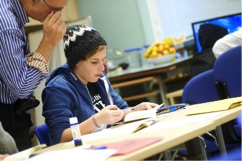 What were your reasons for doing this development work?
What were your reasons for doing this development work?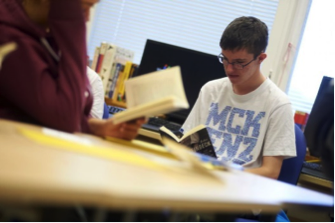 Who were the identified target learners?
Who were the identified target learners?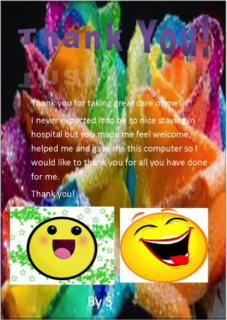 What did you do – what teaching approaches did you use?
What did you do – what teaching approaches did you use?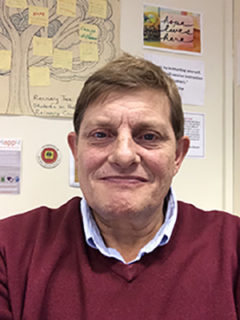
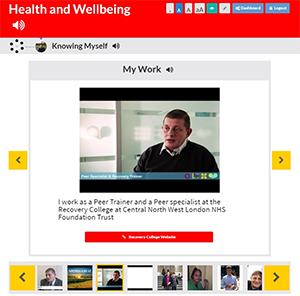
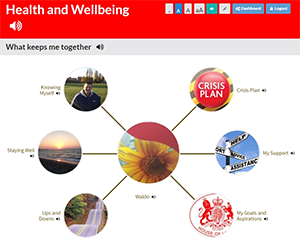 Waldo is excited to bring the Wiki to mental health services and believes that it is a
Waldo is excited to bring the Wiki to mental health services and believes that it is a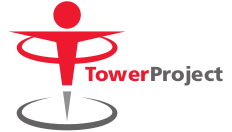 The Tower Project is a community based voluntary sector organisation and leading service provider for children and adults with a learning disability, sensory disability, autism, physical disability or health related issue.
The Tower Project is a community based voluntary sector organisation and leading service provider for children and adults with a learning disability, sensory disability, autism, physical disability or health related issue.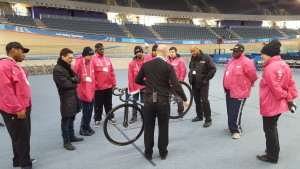 Scott Kennedy, Training and Development Manager for JETS, is using a Multimedia Advocacy approach and Rix Wikis to enable the young people he works with to showcase their work experience, their skills and aptitudes.
Scott Kennedy, Training and Development Manager for JETS, is using a Multimedia Advocacy approach and Rix Wikis to enable the young people he works with to showcase their work experience, their skills and aptitudes.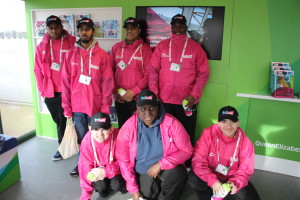 JETS is currently involved in a new project with Hackney College, helping around 10 young people gain specific work experience in three different settings over four months. They will be working at the Olympic Park in Stratford, setting up an Easter market stall in Spitalfields Market and rolling up their sleeves to get stuck in at a social enterprise which provides a valeting service for community transport vehicles.
JETS is currently involved in a new project with Hackney College, helping around 10 young people gain specific work experience in three different settings over four months. They will be working at the Olympic Park in Stratford, setting up an Easter market stall in Spitalfields Market and rolling up their sleeves to get stuck in at a social enterprise which provides a valeting service for community transport vehicles.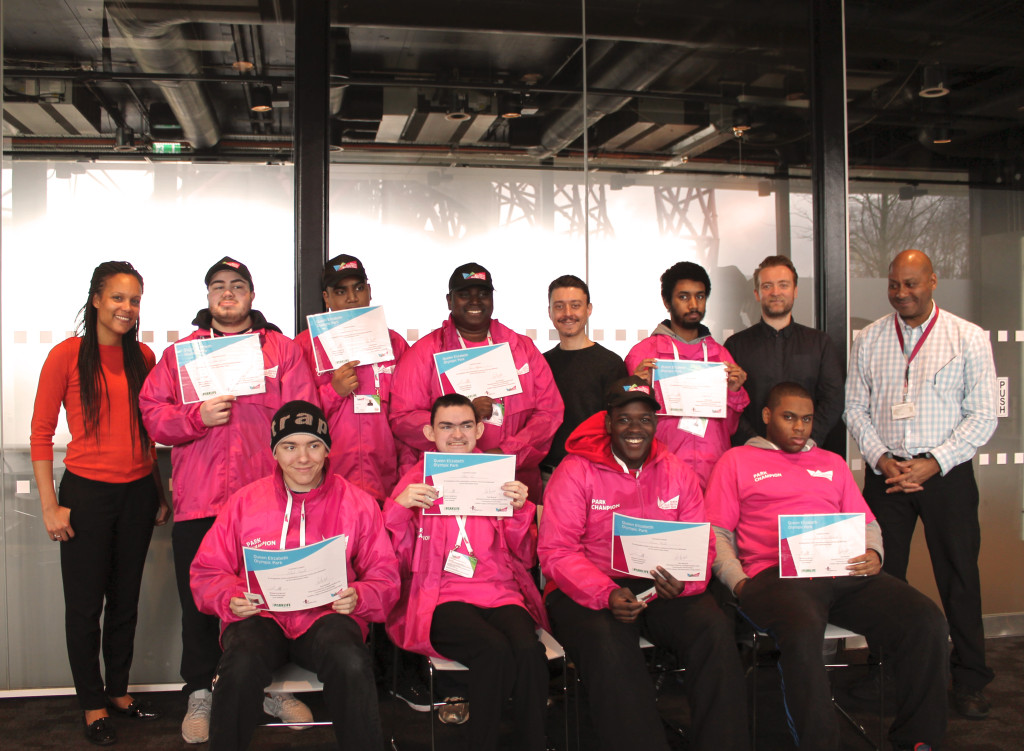
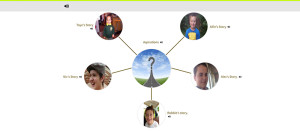 Parents very much welcome the opportunity for professionals working with their child/YP to provide video input into their Wiki; all felt by having a Wiki their child’s/YP’s EHCP could be better co-ordinated in a joined up way. For example, one child’s paediatrician provided medical information on their Wiki to aid with secondary school transition.
Parents very much welcome the opportunity for professionals working with their child/YP to provide video input into their Wiki; all felt by having a Wiki their child’s/YP’s EHCP could be better co-ordinated in a joined up way. For example, one child’s paediatrician provided medical information on their Wiki to aid with secondary school transition. Achieving for Children (AfC) is a social enterprise company set up by Kingston and Richmond Councils to provide targeted help and support to children and families in need within the two London boroughs. It has partnered with Rix Research & Media to pioneer the use of Multimedia Advocacy and the Rix Wiki tool and training to embed person-centred approaches which, it believes will be invaluable in implementing the new Education, Health and Care Plans (EHCP) for those with learning disabilities in the area.
Achieving for Children (AfC) is a social enterprise company set up by Kingston and Richmond Councils to provide targeted help and support to children and families in need within the two London boroughs. It has partnered with Rix Research & Media to pioneer the use of Multimedia Advocacy and the Rix Wiki tool and training to embed person-centred approaches which, it believes will be invaluable in implementing the new Education, Health and Care Plans (EHCP) for those with learning disabilities in the area.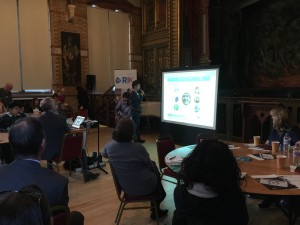 James Mannion, Business Systems Project Manager for AfC, said, “We want to empower our children and young people who face challenges because of their communications difficulties, to show how they can use Wikis to get across their preferences and viewpoints by using pictures, sounds, video and words – to give them a voice and enable them to take control of their lives. We call this multimedia advocacy.
James Mannion, Business Systems Project Manager for AfC, said, “We want to empower our children and young people who face challenges because of their communications difficulties, to show how they can use Wikis to get across their preferences and viewpoints by using pictures, sounds, video and words – to give them a voice and enable them to take control of their lives. We call this multimedia advocacy.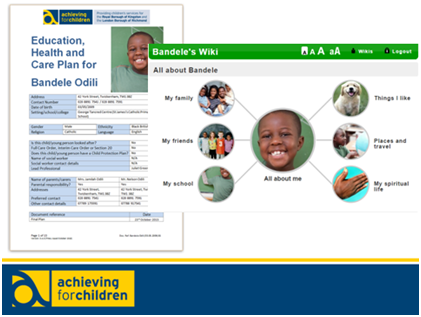 As a result of the event, there are a further four schools who want to lead the way using Multimedia Advocacy and Rix Wikis and there are also two families who want to use Wikis for their annual reviews.
As a result of the event, there are a further four schools who want to lead the way using Multimedia Advocacy and Rix Wikis and there are also two families who want to use Wikis for their annual reviews.